|
Maintaining a beautiful and functional home and garden is essential for homeowners and renters alike. At Clark Real Estate, we believe that a well-maintained property not only enhances your living experience but also preserves the value of your investment. Here are some expert tips to keep your home and garden in top shape all year round.
1. Seasonal Maintenance Checks One of the best ways to keep your home in excellent condition is to perform regular seasonal maintenance checks. In the spring, inspect your roof for any winter damage, clean out gutters, and ensure your HVAC system is ready for the warmer months. Summer is an ideal time to check for any cracks in the foundation, inspect windows and doors for leaks, and service your lawn equipment. As fall approaches, clean your gutters again, check your heating system, and winterize your outdoor plumbing. Winter calls for regular snow removal from driveways and walkways, and ensuring your home is properly insulated to keep heating costs down. 2. Lawn and Garden Care A lush, green lawn and vibrant garden can significantly enhance your property's curb appeal. Regular mowing, watering, and fertilizing are key to maintaining a healthy lawn. Use a mulching mower to help return nutrients to the soil and reduce the need for chemical fertilizers. In your garden, choose native plants that are well-suited to your local climate and soil conditions. This not only makes gardening easier but also supports local wildlife. Regular weeding, pruning, and mulching can keep your garden looking its best. 3. Exterior Home Maintenance The exterior of your home is the first thing people see, so it's important to keep it in good condition. Regularly clean and inspect your siding, brickwork, and paint. Pressure washing can remove dirt and grime, making your home look fresh and well-kept. Check for any signs of damage, such as peeling paint or cracks in the siding, and address these issues promptly to prevent further deterioration. Additionally, ensure that your home's exterior lighting is functional and enhances the safety and beauty of your property. 4. Indoor Maintenance Tips Keeping the interior of your home well-maintained is equally important. Regularly check your plumbing for leaks and fix any issues immediately to prevent water damage. Clean and inspect your appliances to ensure they are functioning efficiently. It's also a good idea to test your smoke and carbon monoxide detectors monthly and replace batteries as needed. Declutter your living spaces to create a clean, organized environment that promotes relaxation and well-being. 5. Energy Efficiency Upgrades Improving your home's energy efficiency not only helps the environment but also reduces your utility bills. Consider upgrading to energy-efficient windows and doors, adding insulation to your attic and walls, and installing a programmable thermostat. LED lighting and energy-efficient appliances can also make a significant difference. Regularly servicing your HVAC system ensures it operates efficiently and effectively throughout the year. 6. Pest Control Pests can cause significant damage to your home and garden, so it's important to keep them at bay. Regularly inspect your property for signs of pests such as termites, ants, or rodents. Keep your home clean and free of food debris that can attract pests. In your garden, use natural pest control methods, such as introducing beneficial insects, to keep harmful pests under control. If you notice a pest problem, address it promptly with the help of a professional if needed. 7. Safety and Security A safe and secure home provides peace of mind for you and your family. Regularly inspect and maintain your home's security systems, including alarms, cameras, and locks. Ensure that your smoke and carbon monoxide detectors are working properly and have a fire extinguisher readily available. Outdoor lighting and well-maintained landscaping can also deter potential intruders and keep your property safe. 8. Regular Inspections Regular professional inspections can help identify potential issues before they become major problems. Schedule annual inspections for your roof, HVAC system, plumbing, and electrical systems. These inspections can save you money in the long run by catching small issues early and preventing costly repairs. At Clark Real Estate, we are committed to helping you maintain a beautiful and functional home and garden. By following these tips, you can ensure that your property remains in top condition, enhancing its value and your enjoyment of your living space. Whether you're a homeowner or a renter, regular maintenance is key to a safe, comfortable, and attractive home. For more personalized advice and professional property management services, don't hesitate to contact us. Discover the perfect rental for your lifestyle – explore the advantages of urban vs. suburban rentals to find your ideal fit. In the ever-evolving landscape of modern living, the urban vs. suburban rentals choice has gained remarkable prominence. The urban pulse, resonating with cultural dynamism and swift accessibility, collides with the suburban allure of spacious tranquility and community charm. Navigating this decision requires a balanced understanding of the inherent merits and trade-offs. Whether you yearn for the energy of city lights or the serenity of tree-lined streets, the decision hinges on many factors. Join us as we delve into the contrasting realms of urban vibrance and suburban respite, guiding you through the pros and cons, considerations, and real-life stories illuminating the path to discovering your ideal dwelling. Pros and Cons of Urban Rentals Living in the heart of the city brings a kaleidoscope of opportunities. The dazzling array of cultural events, from concerts to art exhibitions, becomes an extension of your doorstep. Short commutes translate into more time for what truly matters. Networking in urban hubs propels personal and professional growth. However, the glitter comes at a price – a steep one. For example, your rent, like the skyline, often reaches towering heights. Amidst the bustling excitement, tranquility can be elusive. Green spaces are a rare oasis amidst the concrete. Urban living is a dance between the vibrant and the chaotic, where convenience and connectivity often outweigh solitude and space. As you navigate these lively streets, keep in mind the dynamic rhythm that urban rentals offer, making every day a symphony of choices. Pros and Cons of Suburban Rentals Venturing beyond the city limits unveils a world of tranquil possibilities. Suburban rentals embrace spaciousness and storage space and offer room to breathe and grow. The symphony here is one of birdsong, a harmony of calm that nurtures families and individuals seeking respite. The cost of living, like the horizon, tends to be less daunting, allowing financial room for pursuing passions. However, this retreat from the urban hustle can come with its own challenges. Longer commutes stretch the journey between work and home. Cultural epicenters may feel distant, and the pace of life might be more leisurely than lively. It's a trade-off between seclusion and convenience, where the expanse of personal space counterbalances the lack of urban thrills. As you explore these suburban landscapes, remember that every corner holds a promise of serenity, an escape from the urban bustle into a haven of tranquility. Factors to Consider When Making the Urban vs. Suburban Rentals Choice The ultimate decision depends on the unique constellation of your life. Family size, work demands, and personal interests form the cosmic web that guides your choice. If urban pulse syncs with your rhythm, proximity to work and cultural dynamism might win. Suburban quietude beckons if space, tranquility, and a slower pace resonate. Consider the stars in your sky – hobbies, social preferences, and the need for green spaces. For some, the allure of city lights takes precedence; for others, the pull of community charm prevails. Balance your cosmic elements, and remember, there's no one-size-fits-all answer. Your celestial blend shapes the narrative – a bespoke tale of urban allure or suburban sanctuary. Comparing Rental Costs The financial constellation plays a pivotal role in the urban vs. suburban rental choice. Urban living sparkles with opportunities yet often comes with a hefty price tag. Rent, utilities, and daily expenses form a constellation of their own, sometimes dazzling, sometimes daunting. The suburban sky tends to be kinder, with costs generally more grounded. Larger spaces and lower rents form the celestial equation. Consider how the financial stars align with your aspirations and resources. A balanced budget might shine brighter in the suburban night, while urban living could demand a sturdier financial launchpad. Balance the cosmic scales between affordability and ambition, and let the monetary stars guide your path to the right rental realm. Case Studies: Real People, Real Choices Let's peer into the stories of those who navigated this cosmic crossroads. Emily, an artist, embraced urban life for its creative pulse, shaping her inspirations. Mark, a father of two, sought suburban serenity, trading city lights for backyard constellations. Emily's canvas flourished amidst the city's vibrant hues, while Mark's children found playground galaxies within their suburban universe. Their different yet equally valid cosmic coordinates showcase how personal narratives shape rental choices. Whether chasing dreams beneath city constellations or cultivating family bonds in suburban galaxies, these tales underscore the individuality of this decision. The cosmic tapestry weaves unique threads, painting distinct portraits in the skies of urban and suburban living. Finding Your Ideal Rental: Tips and Resources
Navigating the diverse rental landscape demands more than just online searches and visits. Many rentals embrace the coziness of compact living spaces. As you embark on this journey, keep in mind that sometimes you might need to expand beyond the confines of your rental. If you find yourself in a situation where space becomes a precious commodity, it's crucial to prepare your items for storage. This is where must-have storage supplies for first-time renters come into play. You need to get the right materials, including packing essentials and containers, to ensure your belongings are well-prepped before they go into a storage unit. Renting a storage unit becomes a great option when you want to declutter without parting with cherished possessions. When pursuing the ideal rental, it's important to think creatively about how to make the most of your space, even beyond the walls of your home. In Conclusion In the grand tapestry of urban vs. suburban rentals, the key is finding the right fit for you. As you traverse the labyrinth of choices, remember that no cosmic map holds all the answers. Your lifestyle aspirations, practical needs, and personal preferences paint the canvas. Urban vivacity or suburban serenity? The choice shapes your daily narrative. From the city's vibrant rhythm to the serenity of suburban streets, every step in this journey adds a stroke to your unique story. So, explore the pros and cons, balance your budget, consider your cosmic priorities, and find your ideal rental. As you forge ahead, remember that amidst the sea of options, it's your voice that guides you, leading you to the destination that resonates most profoundly with the symphony of your life. Photos via: Pexels Pexels Pexels Pexels Check out our creative storage solutions for your rental home to improve your property, and increase its appeal! If you want to use the space in your home optimally, it’ll take a bit of imagination, especially if you don’t want to make any major changes to the property! So, here are some creative storage solutions for your rental home. Utilize vertical space Regarding creative storage solutions for your rental, utilizing vertical space is a smart strategy. By thinking vertically, you can make the most of limited floor space. So, install floating shelves on your walls to create stylish displays for books, decorative items, or kitchen supplies. You can put shelving in cheaply and easily, no matter if you decide on a furnished vs. unfurnished rental, too! Another space-saving solution is using over-the-door organizers, perfect for storing shoes, accessories, or cleaning supplies. Don't forget to incorporate wall-mounted hooks and racks for hanging coats, hats, and bags. So, whether you go with floating shelves, over-the-door organizers, or wall-mounted hooks, utilizing vertical space will help maximize storage in your rental home without sacrificing valuable floor space. Make use of underutilized spaces Don't overlook the potential of underutilized spaces in your quest for creative storage solutions for your rental. These often-overlooked areas can provide valuable opportunities. Consider utilizing the area under your bed by using containers or bed risers. That allows you to place items like linens, out-of-season clothing, or even extra shoes there. Another underutilized space is the area above doorways or in unused corners. You can put floating shelves in these areas to showcase decorative items or create a small library. Additionally, don't forget about the areas above your kitchen cabinets. These are perfect for storing infrequently used kitchen appliances, extra dishes, or decorative baskets. Multi-functional furniture When maximizing storage in your rental home, multi-functional furniture is a game-changer. Furniture pieces that serve multiple purposes can help you make the most of your home. So, consider investing in ottomans or benches with built-in compartments to place extra blankets, pillows, or books. Bed frames with built-in drawers or shelves are also a great option for maximizing the utility of your bedroom. They provide additional storage for clothing or other items, eliminating the need for a separate dresser. Another multi-functional furniture piece is a room divider with shelves or compartments. It creates a sense of privacy and separation in open floor plans and provides extra storage areas for books, plants, or display items. Just remember that the moving experts from movingforwardgroupinc.com note that moving this type of furniture can be tricky without professional assistance! Creative closet solutions When it comes to organizing your rental home, don't neglect your closets. Implementing creative solutions can transform your closets into efficient storage. For example, hanging organizers are perfect for neatly arranging shoes, accessories, and folded clothes. They maximize the use of verticality and keep everything within easy reach. Another great idea is to install tension rods for additional hanging space. That is particularly useful for expanding your wardrobe or organizing scarves and belts. To further enhance organization, utilize bins and baskets. These can be labeled and used to categorize items like hats, gloves, or seasonal clothing. Since closets can be easily closed and gaining access to them is not easy, they can also contribute to making a more pet-friendly rental by keeping items dangerous to animals out of reach. Efficient kitchen storage Efficient kitchen storage is essential for a well-organized and functional rental home kitchen. One creative solution is to install magnetic strips on your walls. That lets you put knives and metal utensils away within easy reach, freeing up drawers. Another idea is to utilize pegboards. Mount them on your kitchen wall and hang pots, pans, and kitchen tools for easy access and a visually appealing display. Investing in stackable containers for pantry items can help maximize space and organize your ingredients. With stackable containers, you can utilize vertical space efficiently while keeping your pantry neat and clutter-free. Creative bathroom storage Creative bathroom storage solutions can make your rental home's bathroom functional and organized. So, utilize adhesive hooks to hang towels, robes, or even loofahs, keeping them within easy reach. Install a shower caddy or organizer to keep toiletries neatly organized and easily accessible during your daily routine. Small baskets or bins can be used to corral cosmetics, bathroom essentials, or even extra toilet paper rolls. These containers can be placed on countertops or cabinets for a clutter-free look to improve your rental! Optimize small spaces Optimizing small spaces in your rental home is key to maximizing storage and functionality. For example, consider using a fold-out table or desk that can be easily tucked away when not in use. This furniture piece provides a designated workspace without taking up valuable floor space! Another space-saving solution is a Murphy bed. When folded up, it frees up the room for other activities, and when unfolded, it provides a comfortable sleeping area. Additionally, wall-mounted organizers or pegboards are excellent for organizing office or craft supplies. They keep items off the floor and create a visually appealing display. So, remember that small spaces can be versatile and functional with the right solutions, making every inch count. That should motivate you to get creative and maximize your compact living space! Outdoor storage solutions Outdoor storage solutions are essential for keeping your rental home organized and clutter-free. So, invest in outdoor storage containers for gardening tools, sports equipment, or seasonal items. These containers protect your belongings from the elements while keeping them easily accessible. Consider vertical gardening techniques to maximize plant space if you have a yard. Vertical planters or hanging baskets add a touch of greenery without taking up valuable ground space. However, you can always consider renting a unit if you don't have access to a yard or enough space. Renting a storage unit allows you to safely store larger items like furniture or excess belongings, giving you peace of mind and creating more space in your rental home. Improving your rental’s utility
With what we covered on creative storage solutions for your rental home, you should know where to start! Of course, don’t be afraid to go off-script and experiment independently. Who knows, you might be able to come up with even better solutions. Photos via: Pixabay Pixabay Unsplash Unsplash Discover the key factors to consider when choosing between renting a house vs. renting an apartment. Explore the advantages and disadvantages. When finding a place to live, one of the most important decisions is renting a house or an apartment. Both options have advantages and disadvantages, and choosing the right one depends on various factors such as budget, lifestyle, and location. This article will explore the key considerations regarding renting a house vs. renting an apartment.
Overview of renting a house The first option offers several advantages when renting a house vs. renting an apartment. One of the primary benefits is the ample space and privacy it provides. Houses generally have multiple bedrooms, a living room, a kitchen, and often a backyard. This extra space is particularly beneficial for families or individuals who require more room for storage, hobbies, or entertaining guests. Additionally, renting a house often means accessing outdoor amenities such as a garden or a patio. If you enjoy spending time outdoors or have pets that need space to roam, this is a perfect solution for your new home. Moreover, renting a house allows for more customization options. Tenants may be free to paint the walls, hang pictures, or make other cosmetic changes, giving them a sense of ownership and personalization. However, renting a house also comes with some drawbacks. The rental costs for houses are generally higher than apartments due to the larger size and additional amenities. Additionally, tenants are typically responsible for maintenance and repairs, which can be costly and time-consuming. Considering these factors and assessing one's ability to handle the additional responsibilities associated with renting a house is essential. Overview of renting an apartment Renting an apartment has its own set of advantages. One of the most significant benefits is the lower rental costs compared to houses. Apartments are generally more affordable due to their smaller size and shared facilities. This makes them attractive to individuals on a tight budget or those looking to save money. Another advantage of renting an apartment is the access to shared amenities. Many apartment complexes offer a gym, swimming pool, or communal areas, which tenants can enjoy without extra expenses or maintenance. This can contribute to a more convenient and enjoyable lifestyle. Moreover, renting an apartment means that the landlord or property management usually handles maintenance and repairs. This can be a significant relief for tenants who do not want to deal with the hassle and cost of fixing things themselves. However, apartments also have their drawbacks. The limited space and lack of privacy can be a concern, especially for families or individuals who value their personal space. Outdoor areas are often limited or nonexistent, which can be disappointing for those who enjoy gardening or spending time outside. When discussing renting a house vs. renting an apartment, the second option typically has restrictions on customization. Tenants may be limited in making significant changes to the apartment, such as painting walls or making structural modifications. This lack of flexibility may be a drawback for those wanting more control over their living space. Factors to consider when choosing between renting a house vs. renting an apartment When deciding between renting a house or an apartment, several factors should be taken into account:
Tips for moving into a rental home When moving into a rental house or apartment, choosing the most efficient ways to relocate your belongings is important. Whether you choose a house or an apartment, there are several ways to ensure a smooth transition. Firstly, you can opt for professional movers who will handle your household goods' packing, loading, and transportation. This relieves the stress of moving heavy furniture and delicate items. Alternatively, if you prefer a DIY approach, you can gather friends or family members to help pack and load your belongings into a rented moving truck. Another option is to utilize portable storage containers, which allow you to pack at your own pace and have them transported to your new rental property. Making a final decision To make an informed decision between renting a house or an apartment, consider the following tips:
Conclusion Choosing between renting a house vs. renting an apartment is a crucial decision that depends on various factors, including budget, lifestyle, and location. While renting a house offers more space and privacy, it comes with higher costs and additional responsibilities. On the other hand, apartments are more affordable, offer shared amenities, and relieve tenants of maintenance duties, but they often come with limited space and customization options. By considering these factors and weighing your priorities, you can make a decision that suits your unique circumstances. Author’s bio: Jane Smith is a highly experienced content creator and blogger. Her work is focused on writing about family, moving, real estate, and home design. With several years of experience working with diverse clients like müv | Trusted Florida Movers, Jane aims to provide her readers with valuable insights and practical tips, helping them easily navigate various aspects of their lives. Photo via Unsplash Do you want to maximize your rental property's ROI? Check out these six tips to boost your rental income and make the most of your investment. Investing in rental properties can be a lucrative opportunity, but it requires effort and attention to detail to ensure you get the most out of your investment. In this article, we'll share six ways to help you maximize your rental property's ROI and build long-term wealth through real estate investing. Let’s explore how you can get the most out of your investment in real estate.
1. Focus on High-Quality Tenants One of the most critical factors for maximizing your rental property's ROI is having high-quality tenants. A responsible tenant can pay rent on time, take care of your property, and avoid causing unnecessary damage or disruptions. However, getting the best tenants is sometimes easier said than done. To attract quality tenants, start by conducting thorough tenant screening. This process should include checking credit scores, rental histories, and references from previous landlords. Additionally, consider requiring a security deposit and conducting a background check to ensure you select trustworthy and financially stable tenants. Another way to focus on high-quality tenants is by setting clear rental criteria and sticking to them. This includes factors such as minimum credit score requirements, income thresholds, and limitations on pets or smoking. By establishing these criteria upfront, you'll be more likely to attract the right tenants and avoid headaches down the line. 2. Keep Up with Maintenance and Repairs Maintaining your rental property is critical for both tenant satisfaction and increasing your ROI. Regular upkeep and timely repairs can prevent small issues from turning into costly problems. Addressing issues promptly is crucial to preventing further damage. If a tenant reports a problem, such as a leaky faucet or a broken appliance, it's essential to respond quickly and make necessary repairs. If your property has an HVAC system, changing air filters and inspecting heating and cooling systems can also prevent costly repairs. Performing seasonal maintenance is another key component of keeping your property in good shape. This includes cleaning gutters, checking for drafts, and inspecting roofing and siding. By taking care of your property, you'll not only prevent costly repairs but also create a more desirable living space for your tenants. 3. Increase Rental Income The best way to maximize your rental property's ROI involves increasing your rental income. Essentially, if you don’t set the correct value for your property, you could be suffering an opportunity cost. Conducting research on the local rental market is crucial for setting a competitive rent rate. Look at comparable rental properties in the area and set your rent at a rate that's competitive but still profitable. Offering amenities such as parking or laundry facilities can also add value to your property and increase rental income. Consider renovating or updating your property to appeal to potential tenants and justify higher rent rates. Another way to increase rental income is by considering fixed rent increases for long-term tenants. This can incentivize tenants to stay in your property long-term and make it more financially viable for you as a landlord. 4. Minimize Vacancy Rates Vacancies can be costly for landlords, both in terms of lost rental income and expenses related to advertising and filling the vacancy. To minimize vacancy rates, start by advertising the property effectively to attract tenants. Use social media, online rental platforms, and local classified ads to get the word out. Offering move-in specials or other incentives can also be an effective way to fill vacancies quickly. Consider offering a discounted security deposit or waiving fees for new tenants to entice them to choose your property over others. Staying on top of lease expirations is also important to minimize vacancy rates. Consider offering lease renewals well in advance and offering incentives, such as lower rent or waived fees, to tenants who renew their leases early. Another way to minimize vacancy rates is by ensuring tenant retention. By providing quality housing and attentive property management, you can create a positive rental experience for your tenants and encourage them to renew their leases. It is also possible that you are facing a high tenant turnover rate. In turn, this can greatly increase your vacancy rates since it will take you some time to find new tenants. Relocation experts from bravo-moving.com suggest looking into why tenants are moving out of your rental property. Consider asking previous tenants why they aren’t renewing their lease and which factors caused them to leave. 5. Take Advantage of Tax Benefits Owning a rental property can come with significant tax benefits. By taking advantage of these benefits, you can maximize your ROI and reduce your overall tax liability. One significant tax benefit of rental property ownership is depreciation. Depreciation allows you to deduct the cost of the property over time, reducing your taxable income. Additionally, many property expenses, such as mortgage interest, property taxes, and repairs, are tax-deductible. Another way to take advantage of tax benefits is by utilizing a 1031 exchange. This allows you to sell a rental property and reinvest the proceeds in another property without paying capital gains taxes. While there are strict guidelines for a 1031 exchange, it can be a powerful tool for maximizing your ROI and building long-term wealth through real estate investing. 6. Consider Professional Property Management Managing a rental property can be time-consuming and challenging, especially if you have multiple properties or a full-time job. Hiring a professional property management company can help you maximize your rental property’s ROI. Experts for property management in the Reno area can ensure that your property is well-maintained, vacancies are minimized, and rent is collected on time. A property management company can handle all aspects of managing your rental property, including tenant screening, rent collection, maintenance and repairs, and advertising. This can free up your time and allow you to focus on other aspects of your real estate investing strategy. While hiring a property management company comes with a cost, it can ultimately save you money by preventing costly mistakes and maximizing your rental income. What If You Have a Long-Distance Rental Property? Managing your rental property remotely can be a challenge, especially if you're moving interstate. However, with the right tools and strategies, it's possible to manage your property effectively from a distance. When you are relocating across the country, for example, interstate moving from California to Nevada and hiring movers, pros can give you a hand and ensure you have a smooth transition. Meanwhile, your property management company can keep things on track with your rental property. A professional property management company can help with everything from tenant screening to rent collection and maintenance. Additionally, technology can be a valuable tool for managing your property remotely. Many landlords are deciding to invest in long distance properties so that you won’t be alone in your situation. Thankfully, by using online platforms for rent collection and communication with tenants, you can streamline the process and keep everything organized. Finally, if you're moving interstate, it's important to research the landlord-tenant laws in your new location to ensure that you're complying with all regulations. With the right approach, you can successfully manage your rental property remotely and ensure that your investment continues to generate a strong ROI. In Summary If you want to maximize your rental property's ROI, it will require attention to detail and a commitment to providing quality housing and property management. By focusing on high-quality tenants, keeping up with maintenance and repairs, increasing rental income, minimizing vacancy rates, taking advantage of tax benefits, and considering professional property management, you can build long-term wealth through real estate investing. Image via Pexels Are you moving into a new apartment? Learn about the best ways to establish a good relationship with your landlord for years to come. As a tenant, having a positive relationship with your landlord is significant for several reasons. Not only does it make your living situation more comfortable and enjoyable, but it can also help you avoid potential conflicts and ensure that your needs are met as a renter. Here are some tips on how to establish a good relationship with your landlord. Communicate effectively One of the most important aspects of establishing a good relationship with your landlord is to communicate effectively. Make sure to keep your landlord informed of any issues or concerns you may have, and always be polite and respectful when communicating with them. Whether you prefer to communicate in person, over the phone, or via email, it's essential to be clear and concise in your messages. Pay your rent on time Paying your rent on time is not only a legal obligation but also crucial in maintaining a positive relationship with your landlord. Rent is the primary source of income for landlords, and any delays or defaults can lead to financial hardship for them. Therefore, timely payment of rent can go a long way in building trust and goodwill between you and your landlord. However, there may be situations where you may not be able to pay your rent on time due to unforeseen circumstances such as a job loss or a medical emergency. In such cases, it is vital to communicate with your landlord as soon as possible and explain your situation. This will help your landlord understand your circumstances and may give you some extra time to arrange for the payment Moreover, keeping an open line of communication with your landlord is always a good practice, even if everything is going smoothly. Regularly updating your landlord about any changes in your financial situation or personal circumstances can help them plan and make necessary arrangements. Keep your living space clean and well-maintained Keeping your living space clean and well-maintained is not only crucial for your well-being, but it also shows your landlord that you're responsible and respectful of the property. Be sure to promptly report any maintenance issues to your landlord, and keep your living space tidy and organized. Follow the rules To ensure a pleasant and hassle-free living experience, it is crucial to abide by all the rules and regulations specified in your lease agreement. It is essential to pay particular attention to noise restrictions, pet policies, and parking regulations, as these are often the most common areas of contention. You don't want to risk getting fined or even evicted for breaking these rules, so it's best to familiarize yourself with them as soon as possible. If you have any questions or concerns about any of the rules in your lease agreement, don't hesitate to reach out to your landlord or property manager. Moreover, if any maintenance or repair issues need to be addressed, report them to your landlord so that they can be resolved as soon as possible. Remember that your lease agreement is a legally binding contract between you and your landlord, so it's crucial to understand your rights and responsibilities as a tenant. By following the rules outlined in your lease agreement and maintaining a good relationship with your landlord, you can enjoy a comfortable and stress-free living experience. Be a good neighbor A positive relationship with your neighbors is essential for a comfortable living experience. It not only fosters a friendly community but also helps in building a good rapport with your landlord. Here are some ways you can do that:
Remember, being a good neighbor is not only about respecting others' rights but also about setting a positive example for others to follow. Be honest and transparent If you have any concerns or issues with your rental unit, it's essential to be honest and transparent with your landlord. This includes being honest about any damage to the unit and reporting any problems or issues as soon as possible. Being open and transparent can help build trust between you and your landlord and help avoid future conflicts. Respect your landlord's time Your landlord is likely busy managing multiple properties and dealing with other tenants, so respecting their time is important. If you need to meet with your landlord, make sure to schedule a time that works for both of you and be punctual for your appointments. Offer to help with small tasks If you notice a small task that needs to be done around the property, such as picking up trash or sweeping the walkway, offer to help your landlord out. This shows that you're willing to be a helpful and responsible tenant and can help establish a positive relationship with your landlord. Be a long-term tenant
Finally, landlords often prefer long-term tenants, as it provides stability and reduces turnover costs. If you're happy with your rental unit and plan on staying for a while, let your landlord know. This can help build a sense of trust and reliability and can make your landlord more likely to go out of their way to accommodate your needs. That is undoubtedly a great way to maintain a good relationship with your landlord. Now you can establish a good relationship with your landlord Establishing a good relationship with your landlord is essential for a number of reasons, and it doesn't have to be difficult. By following these tips, you can ensure that your living situation is comfortable and enjoyable while maintaining a positive relationship with your landlord. Photos via: Pexels Pexels Pexels Pexels If you're thinking about renovating your home, there are a few things you should know before you get started. From understanding the different types of renovations to budgeting for your project, this guide from Clark Real Estate will give you an overview of what to expect when it comes to renovating your home.
Different Types of Home Renovations There are many different types of home renovations, from small cosmetic updates to major structural overhauls. Some common home renovation projects include:
Establishing a Timeline and Schedule Once you've decided on the scope of your project, it's time to establish a timeline and schedule. This will help you stay on track and ensure that your project is completed on time and within budget.Some factors to consider when creating your timeline and schedule include:
Budgeting for Your Renovation Next, you'll need to create a budget for your renovation. This will help you keep track of all the costs associated with your project and ensure that you don't go over budget. When budgeting for your renovation, be sure to factor in the cost of the following:
Software Used by Contractors These Days Contractors today use a variety of software applications to manage their projects, including project management software, accounting software, and CAD (computer-aided design) software. Certain specializations also have their own specialized software. All in all, by understanding which software applications your contractor is using, you can better communicate with them and stay up-to-date on the progress of your renovation. How to Find Capable, Trustworthy Contractors Once you've established a budget and timeline for your project, it's time to find capable, trustworthy contractors who can get the job done right. Here are some tips for finding reputable contractors:
Clearly Communicating Your Ideas One of the most important aspects of any home renovation is clear communication between you and your contractor. After all, they're the ones who will be responsible for bringing your vision to life! Make sure you take the time to sit down with them and clearly explain what it is you're looking for before work gets underway. Putting your ideas in writing is advisable, as well. If you like, you can start in Word, then save the files as PDFs so that they can be easily accessed on different devices. If you want to join various PDFs together, you can do so in seconds by selecting a PDF merger tool that you can use for free. Getting Permits Depending on the type and scope of your renovation, you may need to obtain certain building permits before work can begin. Your contractor should be able to advise you on which permits are required for your project. Adding a Home Office With more and more people working from home these days, it's no surprise that many homeowners are looking to add a dedicated home office space as part of their renovation plans. If this is something you're considering for your own home, be sure to factor in the cost of additional electrical outlets, internet hookups, and any other special features that may be required. The Benefits of a Home Warranty Finally, one last thing to consider when renovating your home is whether or not to purchase a home warranty. This type of insurance protects against unexpected repairs or replacements that may be needed after the completion of your renovation project. While not required, a home warranty can give you peace of mind knowing that your investment is protected. Now that you know more about what to expect when renovating your home, it's time to start planning YOUR dream renovation! Just remember: careful planning, clear communication, and staying within budget are key to ensuring that your project goes off without a hitch! Clark Real Estate offers a variety of property management services for landlords and tenants alike. If you have any questions, please let us know. Image via Pexels Are you thinking about moving to Reno, NV? Whether you’re a current or prospective entrepreneur, Reno is a fantastic location to run a business. The city and state boasts all kinds of wonderful opportunities for entrepreneurs. You’ll enjoy robust community support for small businesses, an educated workforce, and no shortage of local resources designed to help local businesses thrive. In a rocky economy, the value of launching a business in a supportive environment cannot be overstated.
Availability of Rentals If you’re not in a position to buy a home, renting is a great alternative, especially in Reno. The city has a variety of rental options at price points suited to various budgets. Look for homes in a neighborhood that fit the needs and wants of your family. Once you’ve chosen a few suitable areas, view online listings to find properties in your price range. Most online rental sites will allow you to filter your search results based on your desired number of bedrooms and bathrooms, so remember to take advantage of these tools! Consider working with us here at Clark Real Estate to find the best rentals in Reno. Explore this and other reasons you should consider setting up shop in Reno: Follow these staging tips for your rental property and find the best possible tenants in the shortest amount of time. For people that want to rent out their property, two things are crucial: to rent fast for their asking price and to have a great tenant who will stay for an extended period. You will have to make potential tenants feel amazing in your property to achieve both of these goals. As all great results usually involve some hard work, it is understandable that you will need to make specific efforts to achieve what you want. It is well known that staging homes yield fantastic outcomes both with tenants without any of their furniture and those that want to rent an empty property. In the following text, 7 staging tips for your rental property will wow your tenant candidates. 1. Your rental property must be clean and clutter-free No one wants to live in a filthy home with numerous unnecessary objects. Also, everything that looks like a lot of work throws off potential renters. Besides, untidiness inspires mistrust in many people, so your first step towards successful staging and renting is the good old cleaning. If you want to be efficient, don’t rush into it without a plan. Get the cleaning supplies first and clean each area at a time to be energy-efficient. Too many objects that haven’t got much of a purpose must go. If your rental property is full of items that make the space too personal and crowded, you should do a thorough decluttering. Do you find it hard to part with your stuff and do not know where to put them? A potential solution for you would be to rent a storage unit. In any case, clean your property and remove what is unnecessary, leaving only the essentials. That will get you a blank canvas for the actual staging. 2. Observe the home as a whole One of the staging tips for your rental property you should always have in mind is that you are dealing with a whole and not rooms of which each comes from its own story. The human mind likes harmony; all else makes it uncomfortable. Once you select the style, stick to it throughout the house. One of the experts from Spyder Moving, with extensive experience, says the interior designers working on his clients’ houses advised people to observe open doors as paintings. You wouldn’t put a painting that doesn’t match the room, would you? And the doors to adjoining rooms are usually open very often, so try to make the view through them fit the surroundings. 3. One of the staging tips for your rental property is to be mostly neutral When it comes to taste, it's impossible to please everyone. What you might consider stylish, your future tenant might deem awful. The safest choice is to remain as neutral as possible. This refers to colors as well as furniture style. Neutral shades do not cause energetic, emotional reactions, so most people feel ok with them. For a bit of a twist, introduce the occasional pop of bold colors. To appeal to a larger number of viewers, restrict those to details that one can easily replace in case the potential renters hate them. When viewing a place, people like to imagine how their life would be in it. They even sometimes consider where they would put their stuff and make it more of their own. Therefore, do not add too many personal touches, leave it more devoid of personality and let them personalize it in their mind. You might want to give them advice on decorating a rental apartment and creating an even stronger connection to your rental property. 4. Add details that invoke a sense of luxury Do you remember the little details in the hotel rooms that made you feel pampered? They are not significant investments, but they make a great impression. You can do that, too, when you are staging your rental property. For example, you could get good quality towels and robes of the same color as the bath and arrange them just like in hotels. Also, high-end soaps are not as expensive, but everyone likes to see them. How about a collection of slippers in the same shade dominant in the home? That will wow the visitors right at the entrance. Apart from placing matching dishcloths in the kitchen, you could get a set of dishes that includes coffee cups. Finally, people love good bedding sets, so get high-quality ones. This will make your property more attractive to renters, and it won’t cost you too much. 5. Designate each room for a specific purpose and make it practical Since you are staging a home and not showing it as an empty property, ensure each room’s purpose is clear. Any confusion that comes to people’s minds about what that particular room is for will make it redundant in their heads. That is not what you want; you want them to think the entire space your property consists of is necessary. So, put only bedroom furniture into bedrooms, and make kids’ rooms child-oriented. All will be clear in your potential clients’ heads, and your property will look better. 6. Don’t forget the curb appeal and the balcony Don’t neglect the outside of your property. If there’s a yard that requires landscaping, make sure you have brought it to perfection. Again, people prefer to move into a home that does not immediately need work. When it comes to landscaping design, keep it simple so the tenants think it is effortless to care for it. The balcony is another matter, and it deserves attention just like all other rooms in the house, if not more. This is a place people like to chill, so try to make it cozy. 7. Make sure your rental property smells and sounds fantastic Let’s put it this way: your rental property is like a lady that is going on a date. Yes, it should be pretty, but it should also smell nice and sound fantastic. There are many air fragrances out there that will make your home smell divine, and everyone that comes to see it will fall in love immediately. As for the sounds, soothing music on TV or the stereo system will do. Everyone will be instantly transported into some relaxing scene in a movie and will want to stay there longer. Final thoughts
As you can see, with these staging tips for your rental property, you will find perfect tenants that will be ecstatic to have found the home of their dreams. Just put in some effort, and it will turn out to be worth your while. You will be making someone’s life better and achieving your renting goal. Now that’s what I call a perfect end of the day. Photos via: Pexels Pexels Pexels Pexels Wondering what kind of floor is best for rental property? Read this guide on how to choose the right flooring for your rental property now. Choosing the flooring for a rental property can turn out to be a difficult choice. After all, picking out the right flooring for a rental is much different than choosing for your own home. Replacing the flooring in a rental property is an investment, and you want to ensure it pays off. As such, making the right choice is vital to your long-term success, and you should consider it carefully. There are a lot of factors that go into this choice, and you need to consider all of them. To help you out, we've put together a guide on how to choose the right flooring for your rental property. Choose based on location When trying to choose the right flooring for your rental property, you should consider the location. This is because certain types of flooring are better suited to different environments, and you can feel the difference. For example, if your property is in an area that is hot and humid, tile flooring is the best choice. Hardwood flooring is typically considered the best option; however, there are certain situations where other choices are better. As such, look into what every type of flooring offers. Pick the one with the most benefits in regard to the surface you will be laying it on. Little things like this are a big part of making your property more attractive to renters. Your main goal, after all, is to attract tenants to your property and always have someone staying there. So, using everything you can to make the property attractive should be a priority. Choose based on target clientele When you want to choose the right flooring for a rental property, you have to consider what kind of clientele you want to attract. For example, if your property is a high-end rental, the tenants will expect lovely flooring. Luxurious flooring is required for high-end rentals; therefore, you should consider options such as hardwood flooring or other durable and fancy floors. On the flip side, if you're targeting tenants in a less fancy area, you can get away with cheaper flooring. Remember, you should only invest in your property as long as it's profitable. So, for less valuable properties, you're better off choosing low-maintenance flooring. Additionally, experts from 24/7 Logistics Services note that you should be very careful when moving new furniture into your properties. After all, you want to ensure that the property doesn't get damaged, and flooring gets damaged quite easily when furniture is transported onto the property. Think about being pet friendly Do you plan on allowing tenants with pets in your rental property? Well, you should know that this limits your options quite a bit. All in all, all flooring options that can trap shed hair are out of the question. Additionally, you shouldn't use flooring which is susceptible to stains. This leaves you with three choices: laminate, hardwood, and tile flooring. These three options are the best for pet-friendly properties since they don't trap shed hair and are very easy to clean. Laminate is a particularly good fit as it's also relatively low maintenance in the long run. However, when you are interested in keeping your property in good shape, you should also consider some tips for preventing water damage in your rental home. The less you worry about maintenance, the better in the long run. So, consider how you can protect your investment early on. Invest in durable flooring Are tenants frequently changing in your property? Then you might want to consider durable flooring. This is because short-term tenants don't take as much care with the property as you might like. Unfortunately, this leaves the property at higher risk of damage, and damage to the floor is quite common. Additionally, if you're frequently changing the furniture in the property, durable flooring is also a good choice. The most durable floors you can find are laminate, linoleum, vinyl tiles, and vinyl sheets. Durable flooring is generally fairly low maintenance, so you can get more than one benefit from the investment. However, remember to think about where to put the furniture in the property while installing the new floor. You can also consider disassembling furniture to make it easier to move and avoid any possible damage to the furniture during transfer. Transferring your furniture while it is in pieces is also safer for the flooring. Consider low-maintenance flooring Low maintenance flooring generally has the highest return on investment rates when compared to other flooring types. This is because you don't have to put much effort into maintaining this type of flooring. We've already mentioned laminate, linoleum, vinyl tiles, and vinyl sheets as part of this category. However, for more (and some cheaper) options, you should consider engineered hardwood, carpet, cork, and floating wood tiles. The longer you can put off maintenance, the better, and these flooring options serve that purpose quite well. And when it comes to saving money, you should also consider ways to save water at your rental property. You'd be surprised how much of a difference saving water can make in your profits. So, do your research and implement multiple ways to save more money in the long run. How to choose the right flooring for your rental property – wrap up
Choosing the right flooring option for your rental property can significantly affect how successful the property is overall. It might come as a surprise, but flooring plays a huge part in attracting tenants and as such, making the right choice is vital to your property's long-term success, especially if you change tenants frequently. The decision can come down to several factors, but what's important is that you do your research and consider every option carefully before coming to a final decision. After all, changing the flooring can take a while, so you should avoid having to do it often. We hope this guide on how to choose the right flooring for your rental property helps you come to a decision, and we wish you a good day. Photos via: Pexels Pexels Pexels Pexels |
Clark Real Estate
305 W. Moana Ste C Reno, NV 89509 (775) 828-3355 Reno Property Management
All
|







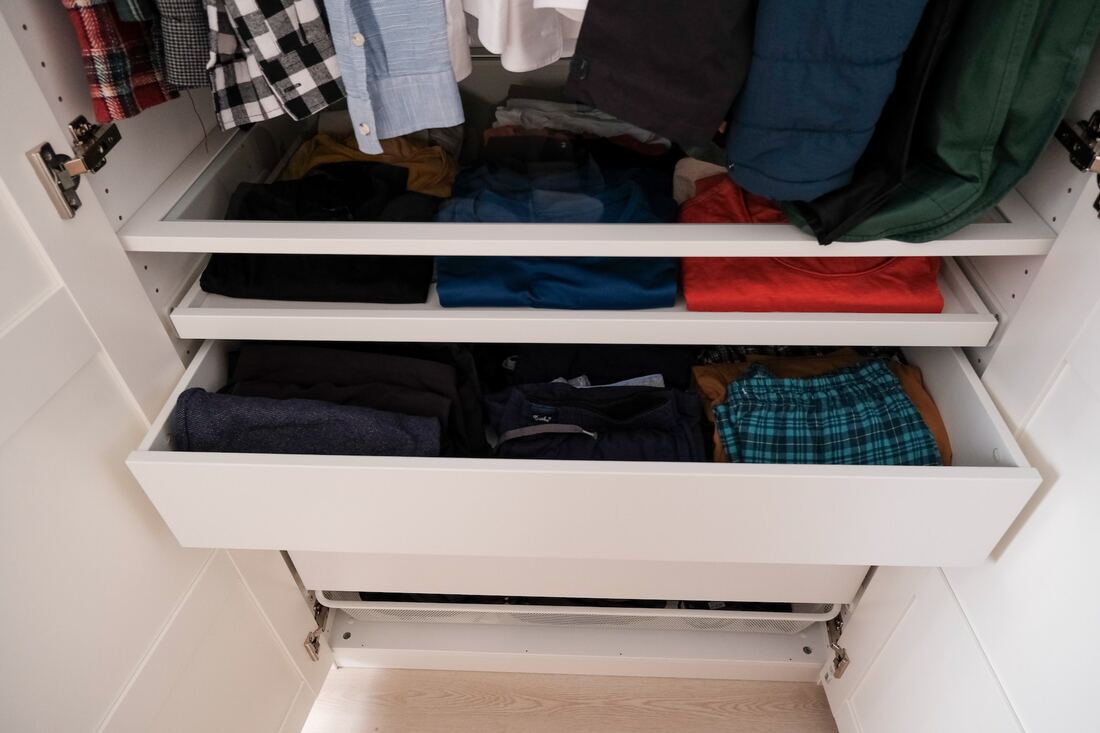

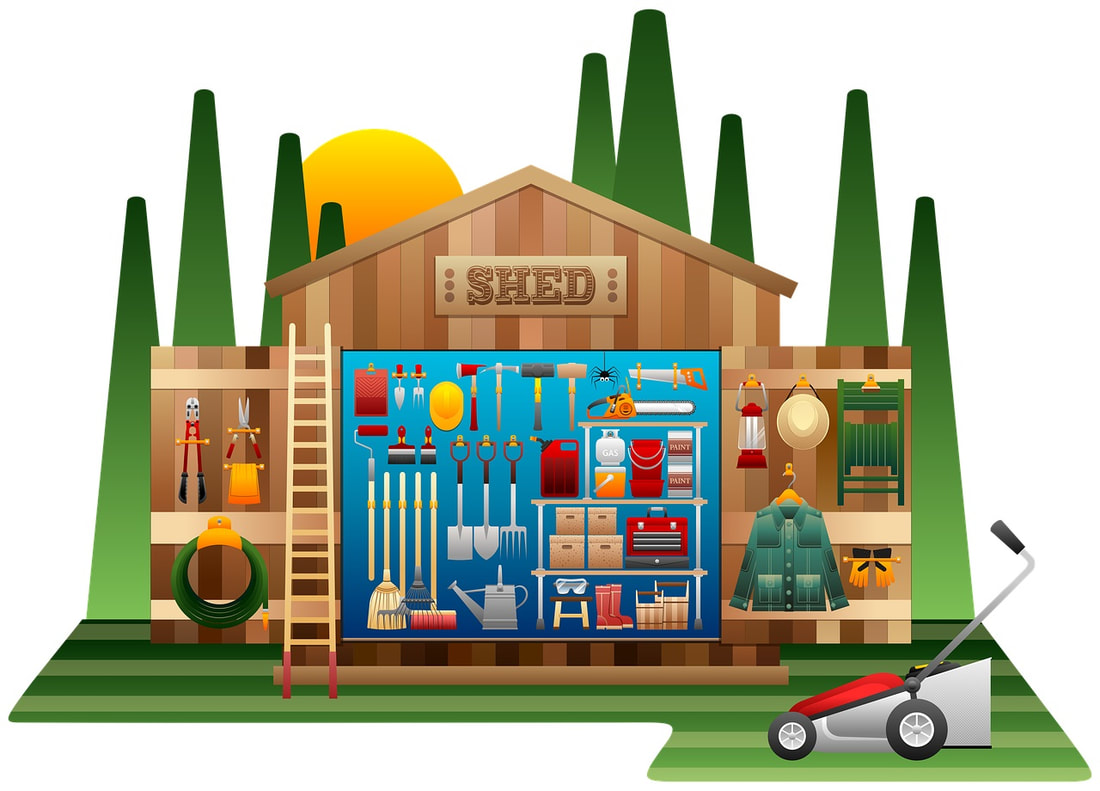
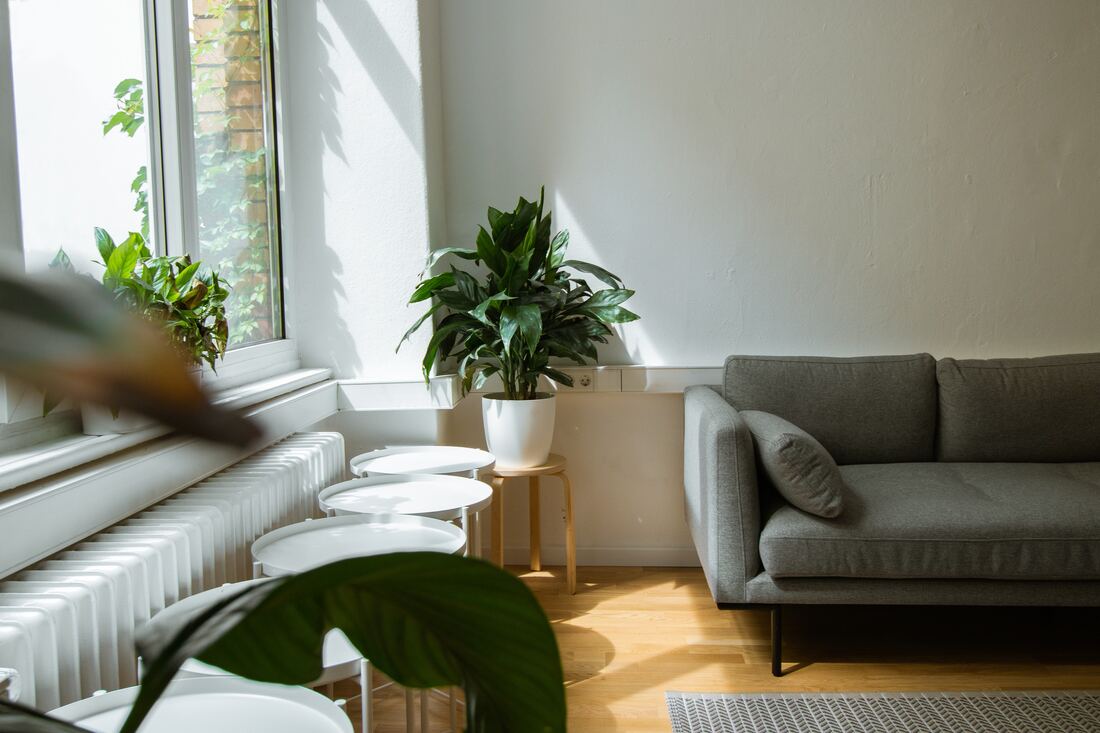




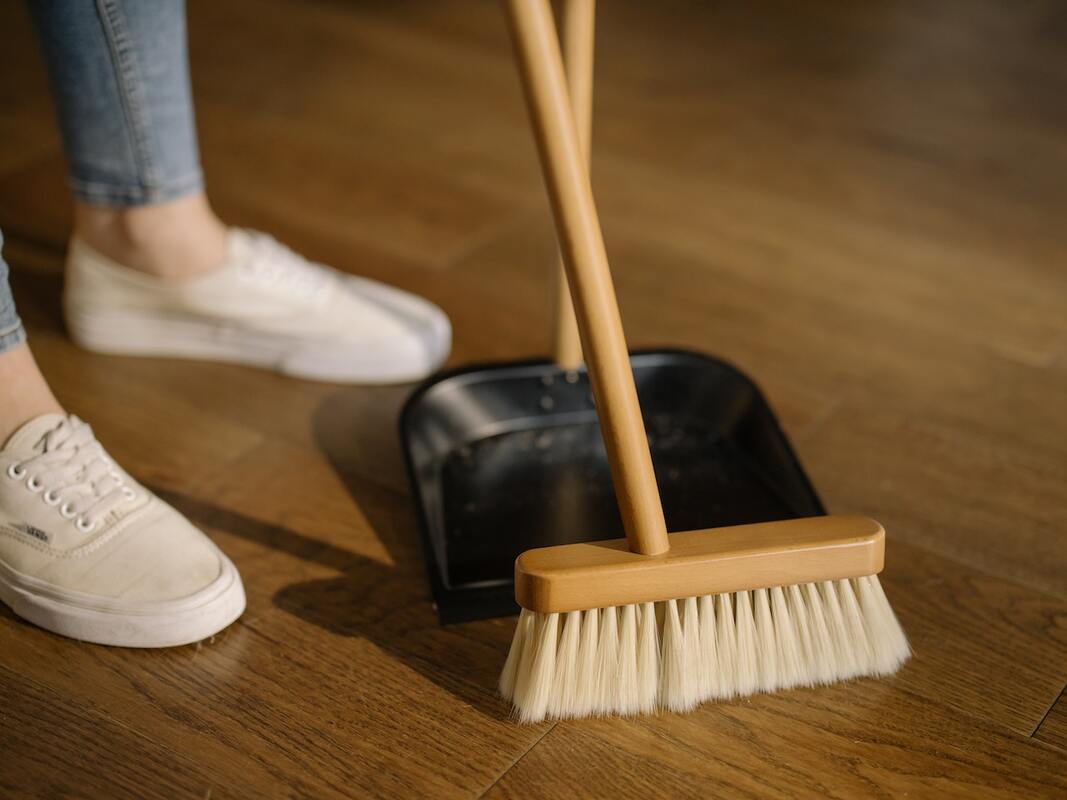
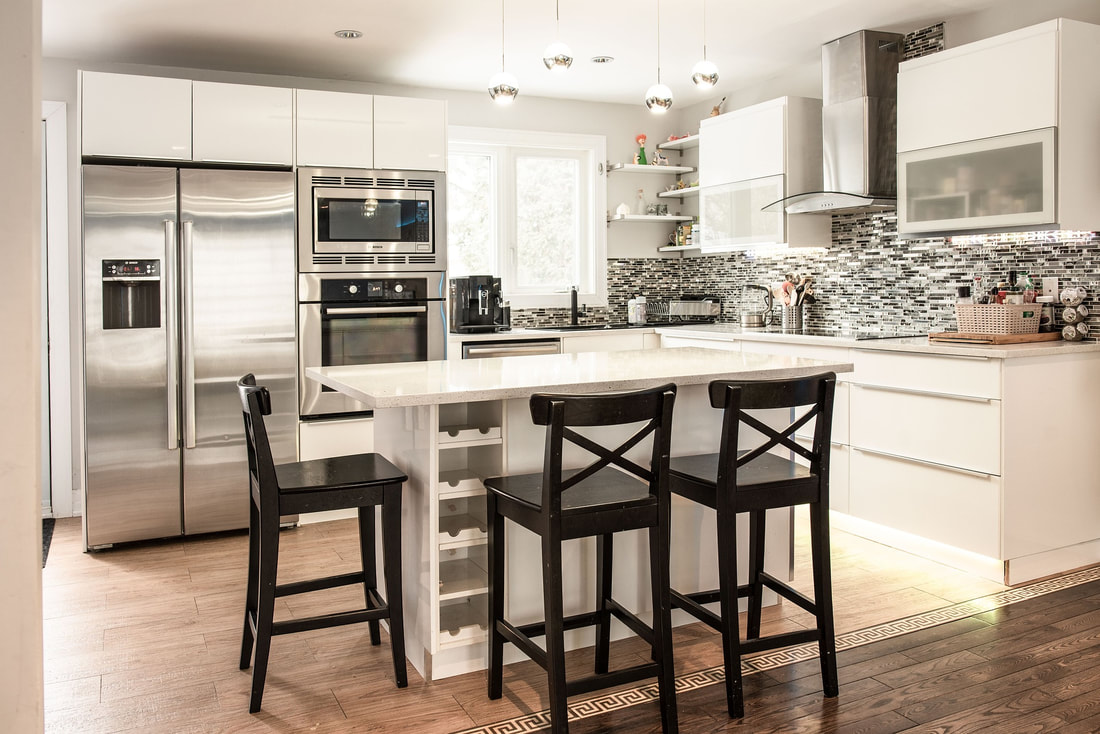

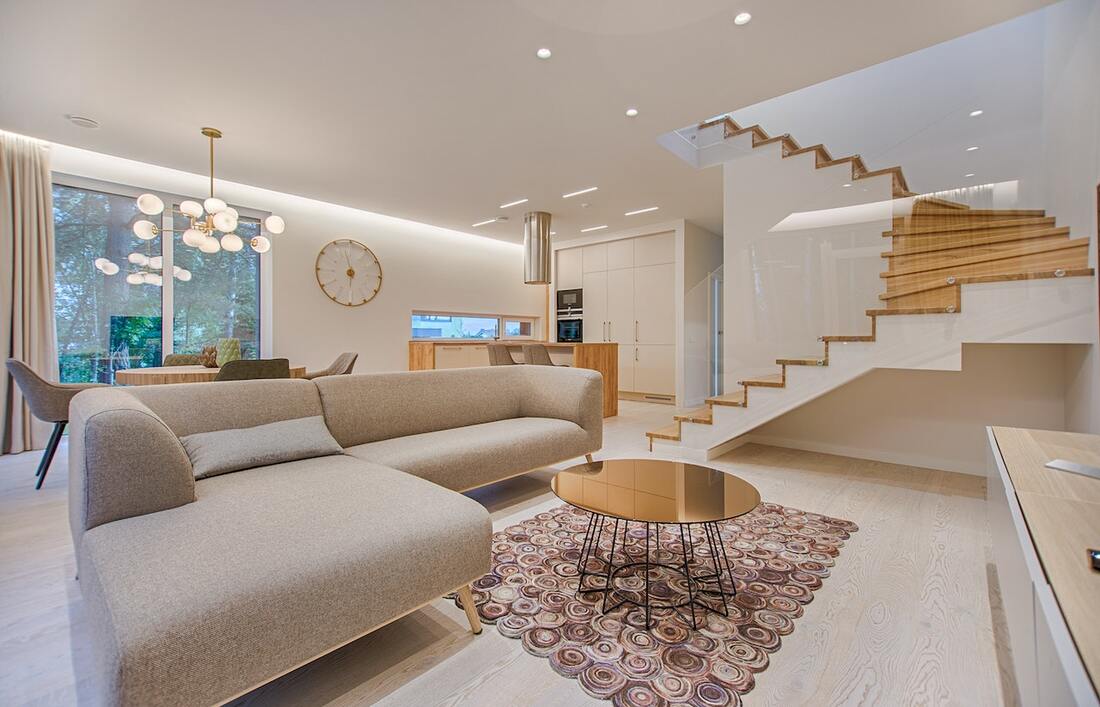
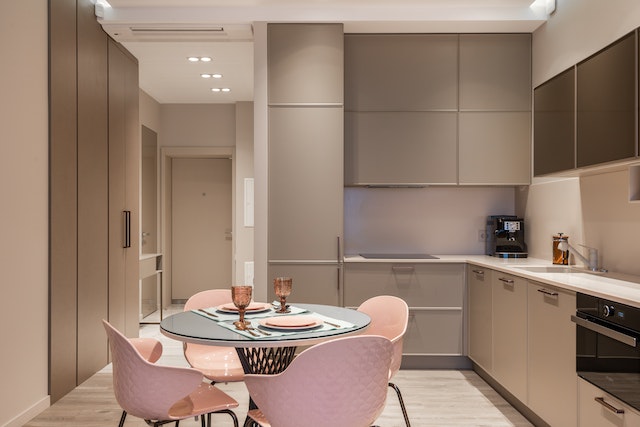


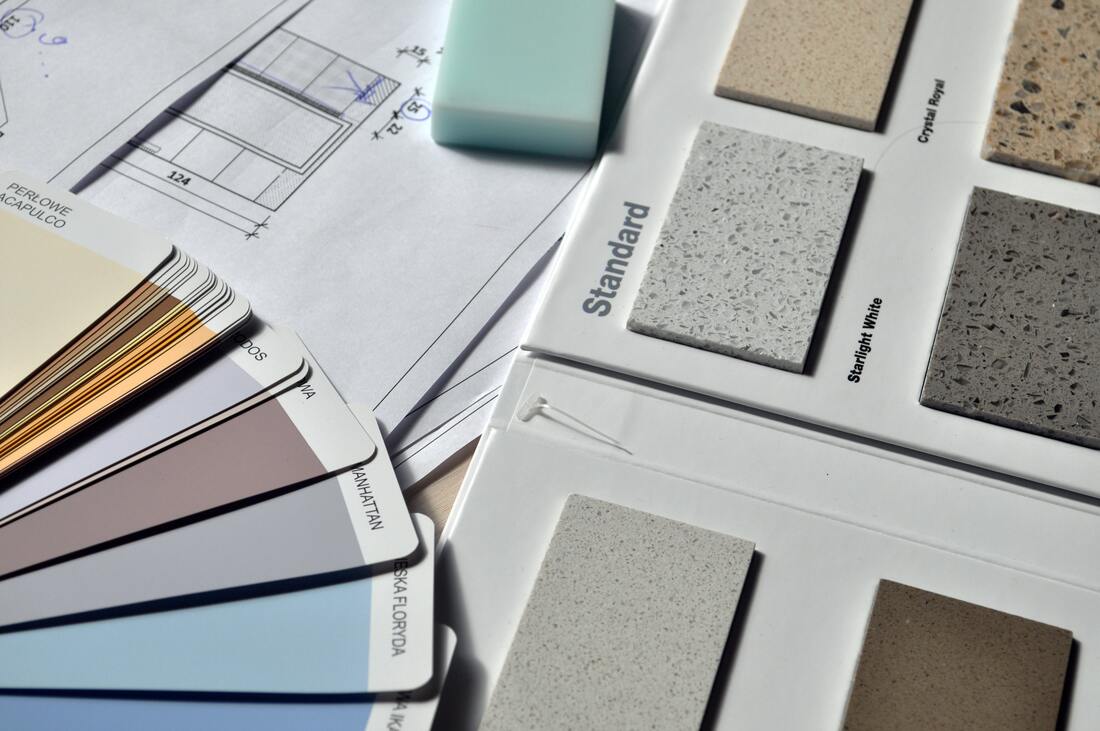
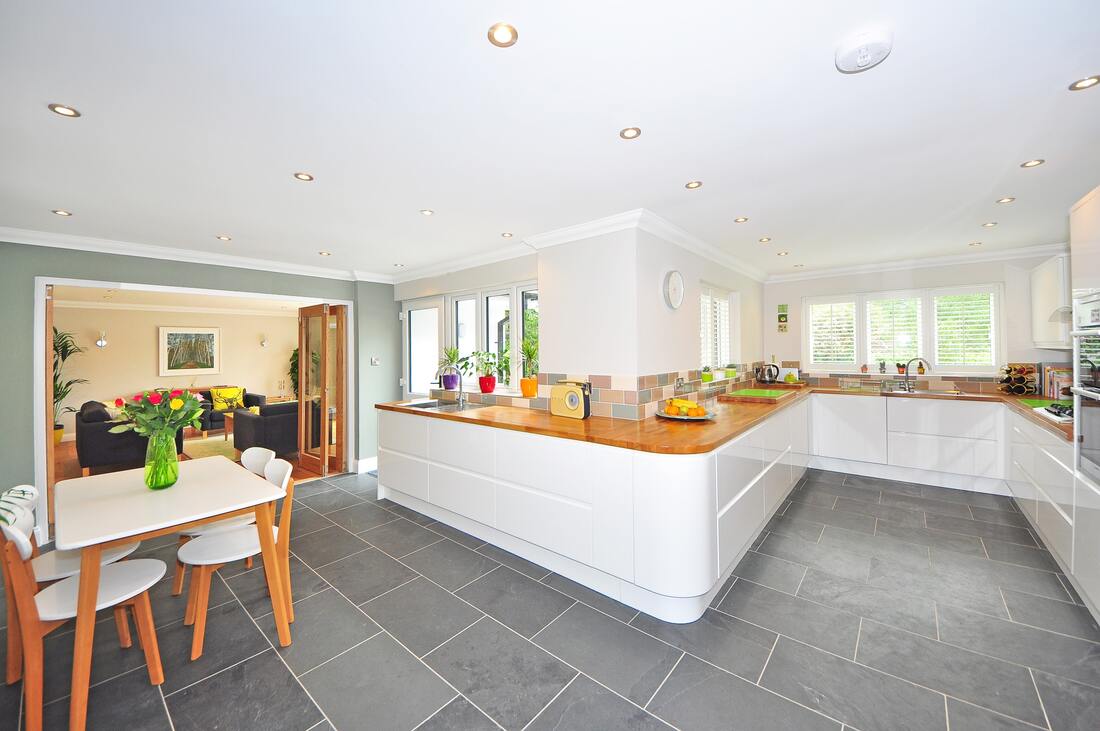
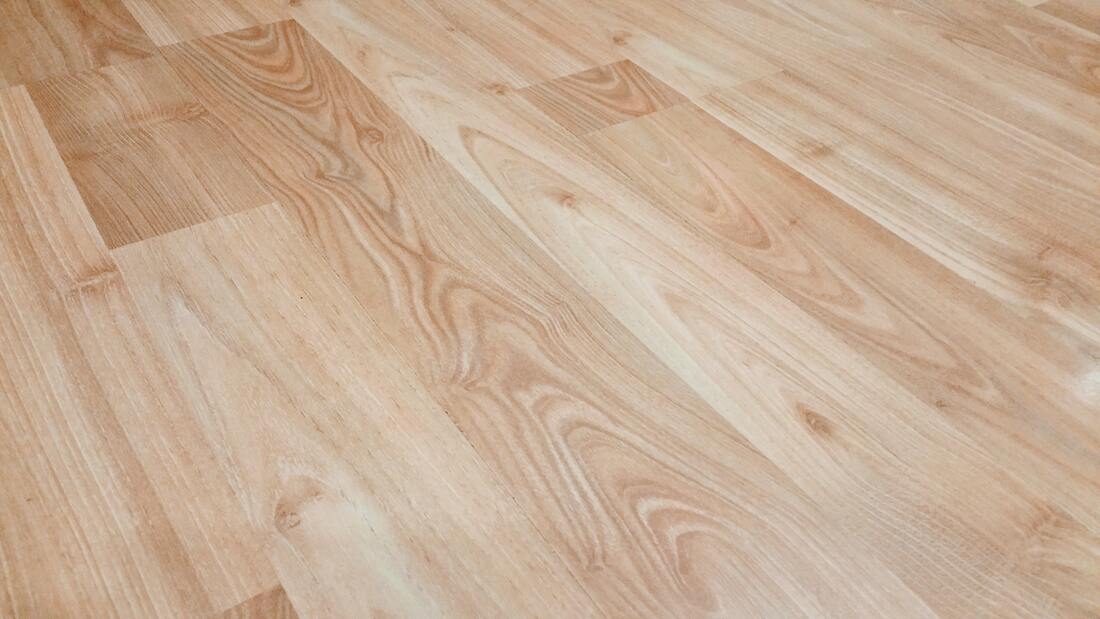


 RSS Feed
RSS Feed

